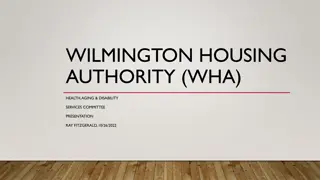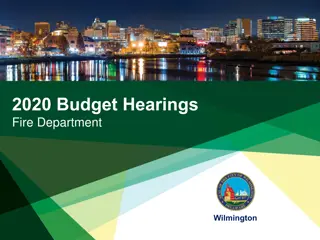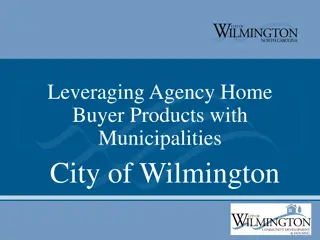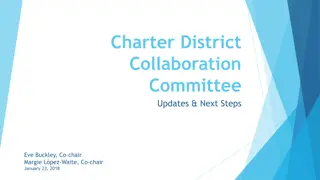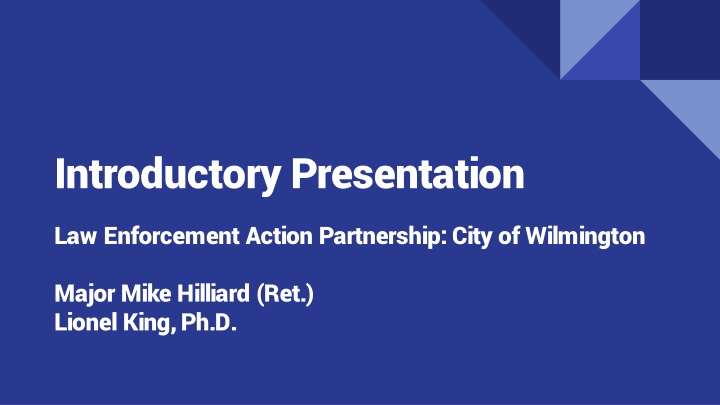
Empowering Law Enforcement Action Partnership for Community Response Programs
Discover how LEAP, led by City of Wilmington Major Mike Hilliard (Ret.) and Dr. Lionel King, is revolutionizing law enforcement through community responder programs. Learn about needs assessment, community-led design, and implementation phases to enhance public safety effectively.
Download Presentation

Please find below an Image/Link to download the presentation.
The content on the website is provided AS IS for your information and personal use only. It may not be sold, licensed, or shared on other websites without obtaining consent from the author. If you encounter any issues during the download, it is possible that the publisher has removed the file from their server.
You are allowed to download the files provided on this website for personal or commercial use, subject to the condition that they are used lawfully. All files are the property of their respective owners.
The content on the website is provided AS IS for your information and personal use only. It may not be sold, licensed, or shared on other websites without obtaining consent from the author.
E N D
Presentation Transcript
Introductory Presentation Law Enforcement Action Partnership: City of Wilmington Major Mike Hilliard (Ret.) Lionel King, Ph.D.
Where is it being done already? CAHOOTS-Eugene CRU-Olympia STAR-Denver ACS-Albuquerque SCRT-San Francisco EMCOT-Austin PIC-Rochester CRESS-Amherst MRU-Dayton CCD-Durham 911 Diversion-Louisville B-HEARD-New York City
Call Analysis Comparison Common Citizen-Initiated Call Types Dayton Brooklyn Center Evanston Amherst Check Well Being 2 4 3 1 Nuisance/Noise Complaint 3 5 22 38 Disturbance/Disorderly Conduct 7 8 4 13 Suspicious Incident/Person/Vehicle 9 2 1 6 Animal Complaint 10 11 21 9 Unwanted Person 13 8
What exactly does LEAP do? Phase 1: Needs assessment Analyze 911 call data Learn about existing city processes, programs Compare to other cities with community responder programs Phase 2: Community- and stakeholder-led design Equip community members and stakeholders to make informed decisions about program design Plan agendas on key topics: call types, 911 dispatch process, hours, budget, referral services, implementation timeline Provide materials e.g. call samples to review Phase 3: Implementation Provide ongoing advice as program manager leads implementation
Phase 1: Needs Assessment in Wilmington Conduct a calls-for-service data analysis. Meet with police, dispatch, fire, Mobile Crisis Team, community members, and other stakeholders to understand current city practices, needs, and concerns. Brief stakeholders on expanded response programs and community-led design processes in other jurisdictions. Use the latest information on existing expanded response programs across the country to identify key process and design choices relevant to Wilmington. Present needs assessment related to expanded response options
Phase 2: Community-led design in Wilmington Provide detailed agendas and practical materials for stakeholder meetings, meet with stakeholder group chairs to prepare them to facilitate meetings, and present key content virtually at meetings. Answer questions for and incorporate feedback from community and city stakeholders. Help shape community-and stakeholder-led recommendations into detailed, implementable action steps for consideration by the council
Questions? Maj.Mike Hilliard (Ret.) -Mike.Hilliard@lawenforcementaction.org Lionel King, Ph.D.-Lionel@lawenforcementaction.org




